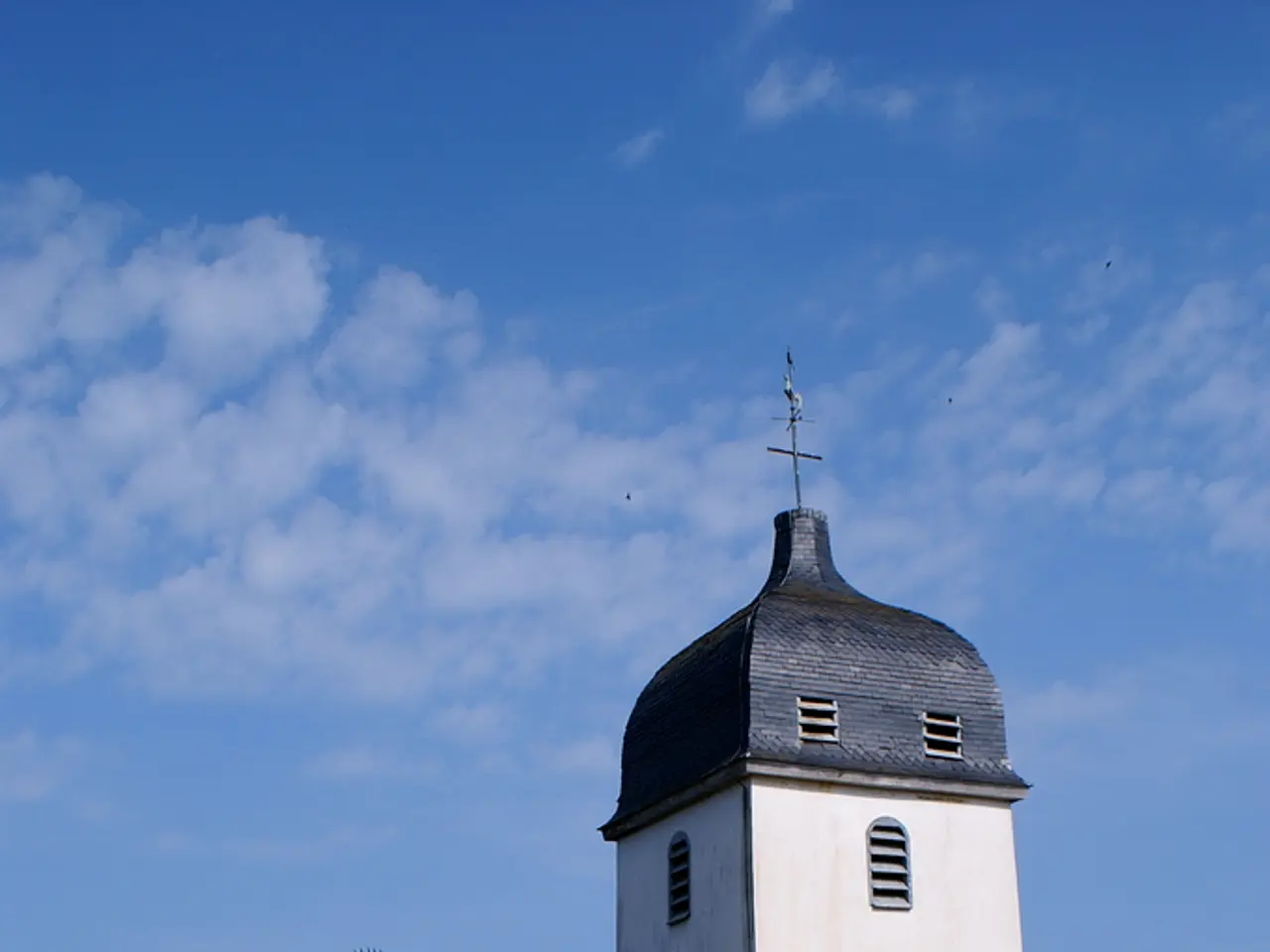Church Leans on Shared Benefits for Community
The Catholic Parish of Pforzheim is embarking on an innovative journey, implementing the Economy for the Common Good (Gemeinwohl-Ökonomie, GWO) approach in partnership with students from Pforzheim University. This initiative focuses on values such as social justice, ecological sustainability, and economic responsibility.
The collaboration, led by Dagmar Schütz, a member of the parish council, aims to reshape economic thinking and behavior to serve human dignity and sustainability rather than exclusive profit motives. The goal is to inspire and motivate all parties involved to make products last, use resources sparingly, and share and distribute them in a way that ensures a dignified life for everyone.
The partnership involves students engaging in research and practical projects that support businesses and institutions to adopt GWO principles, community initiatives led or supported by the Catholic Parish aiming at integrating economic practices that benefit the broader society, and educational workshops or seminars that raise awareness on the societal impact of economic choices.
Joachim Langer, the speaker of the Economy for the Common Good workshop in Heidelberg, recently spoke in St. Francis Church in Pforzheim. Langer emphasized that the common goal of GWO is a good life for all, for humans and the environment. The collaboration is also working towards creating framework conditions that promote longevity, repairability, and environmental friendliness in the parish's operations.
Pastoral worker Markus Schütz provided examples of the areas the parish will focus on. These include creating environmentally friendly conditions, checking the fairness of prices for church decoration materials, CO2 emissions, and interpersonal relationships within the parish. The collaboration also aims to record the CO2 emissions produced by all employees of the parish, including 14 kindergartens, church attendees, and those attending other church events.
This collaboration aligns well with the values of the Catholic social teaching and the academic environment of Pforzheim University. Since Pforzheim is also home to companies like Wieland Edelmetalle, which emphasize social and environmental responsibility, the local context supports such collaborations towards ethical and sustainable economic models.
In sum, the Catholic Parish of Pforzheim, in collaboration with Pforzheim University students, is implementing the Economy for the Common Good by focusing on ethical economic practices that promote social justice, environmental stewardship, and the welfare of all community members. The main goals are to ensure that everyone involved has access to resources necessary for a dignified life and to create a holistic approach to the common good.
[1] Catholic Parish of Pforzheim's website [5] Pforzheim University's website
- The Catholic Parish of Pforzheim, in line with environmental-science and health-and-wellness values, aims to create environmentally friendly conditions as part of their Economy for the Common Good (GWO) collaboration with Pforzheim University.
- The GWO partnership, focusing on science, finance, and business, aims to inspire and motivate all parties to make products last and use resources sparingly, contributing to personal-growth and sustainable economic practices.
- The collaboration between the Catholic Parish and Pforzheim University is intended to foster learning and self-development, raising awareness on the societal impact of economic choices in education-and-self-development and environmental-science sectors.
- In the spirit of climate-change activism and ecological sustainability, the joint initiative led by Dagmar Schütz seeks to record the CO2 emissions produced by all employees of the parish, in an effort to reduce them and promote longevity, repairability, and environmental friendliness in their operations.
- This transformative initiative, guided by the values of Catholic social teaching and social justice, aligns well with the emphasis on ethical and sustainable economic models by companies like Wieland Edelmetalle in Pforzheim, thereby establishing a unique combination of academia, business, and faith in promoting the common good.




